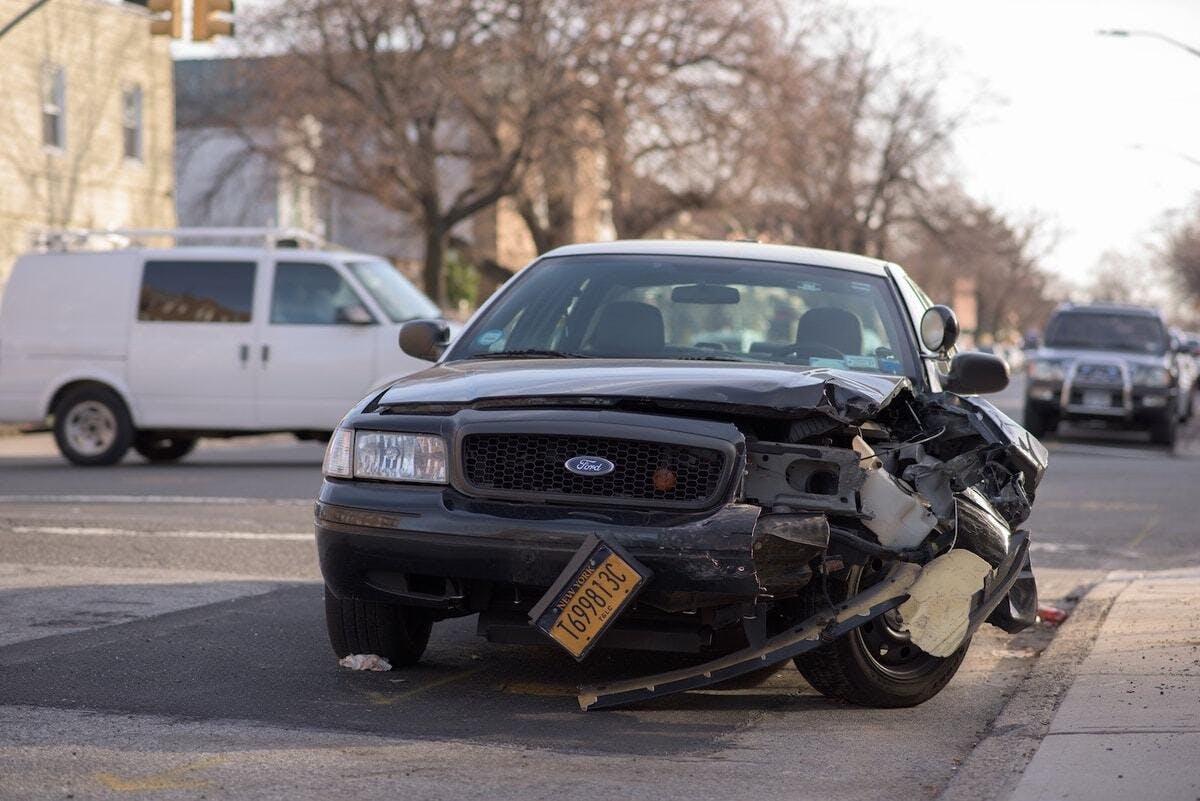Steps to take After a Collision
An automobile collision can happen to anyone at any time, whether you practice defensive drivingResources Terms Defensive_driving Driversed.com or not. It doesn't matter if you're in an accident due to a distracted driver, bad road conditions, or just bad luck — the end result is the same. Here's what to do if you are in an accident.
What to Do if You Are in a Collision
When you are in a collision, the most important thing to try and do is remain as calm as possible. You will make it through the situation easier than if you panic. Once the initial rush is over, follow these steps so you will know exactly what to do in the aftermath of an accident.
Assess You and Your Passengers' Health
The first thing that you need to do after an accident is to make sure you didn't sustain any injuries. Once you determine you're fine, check on your passengers if you have any with you. If anyone is seriously injured, call emergency services immediately so the injured person can receive treatment. Don't try and move anyone from the car if they sustained injuries, just in case they have a spinal injury.
Move Your Car to a Safe Place
Once you make sure everyone is healthy, move your car over to the shoulder of the road or a nearby parking area as long as it is driveable. If your car is no longer driveable, carefully exit your vehicle and walk to a safe place off of the road. If it is nighttime, set up roadside flares or reflectors if you have them in your emergency kit. This helps keep other drivers alert of the accident ahead of them.
Call the Authorities
You need to notify the police about the car accident so they can document it and get a clean-up crew to the scene if needed. Some states legally require the police to come to the scene of even minor fender benders, but in others, like Ohio2020 SCO 0324 181418.asp#.YhQtqujMKUl Cases, you don't have to wait as long as you give the other driver your information.
Exchange Insurance Information
It is important that you and the other driver exchange all of the following information.
Full name, address, phone number, and email address
Driver's license number
Make, model, color, and license plate number
Insurance company name and policy number
If you miss gathering any of these bits of information, it can cause problems when filing an insurance claim.
Document the Collision
Take pictures of the scene of the accident with your phone including all of the vehicles involved and their damage. Next, talk to the police officers that showed up, record their names and badge numbers, and ask for a copy of their police report. If you see any witnesses in the area, get the contact information of some of them in case you need them to corroborate what happened. Keep an accident report formSites Default Files Dc Sites Ddot Non Injury%20Crash%20Checklist%20and%20Guide.pdf Ddot.dc.gov in your glove box so you don't miss a detail.
Contact Your Insurance Company
Once you make it back home after your accident, start the insurance claim process by calling your insurance agent. They will ask for all of the information that you recorded at the scene, what kind of damage the vehicles in the collision sustained, and pictures of everything. They will then file your claim and give you a rough timeline of what to expect.
Drive Safely and Avoid a Collision
Automobile accidents come out of nowhere and can leave even the most experienced driver in a panic. Try signing up for in-car driving lessons from Driving Lessons Driversed.comDriving Lessons Driversed.comDriversEd.comDriving Lessons Driversed.comDriving Lessons Driversed.com. These lessons can teach you ways to avoid accidentsTrending 5 Accident Avoidance Tips You Wont Learn In Drivers Ed Driversed.com while you're behind the wheel, so you don't have to deal with pesky insurance claims.
Take your Traffic School or Defensive Driving Course Online Today!

The Most Common Car Accident Fatalities: What to Know
Always avoid situations that cause the most common car accident fatalities like driving drunk, distracted, or drowsy, and always wear your seatbelt.

What to Do After a Car Accident
What you do or don't do in the aftermath of a car accident can affect insurance and legal matters later on. Find out what procedures to follow after a car accident.

When Should You Replace Your Tires?
Having well-maintained tires could save you during a car crash. But how can you tell when to replace your tires? These two tests have got you covered.
Looking for more driving resources?
Enter your email for deals, study materials, car maintenance tips, insurance savings, and more.
© 1997-2026 DriversEd.com. All rights reserved. Please see our privacy policy for more details.






